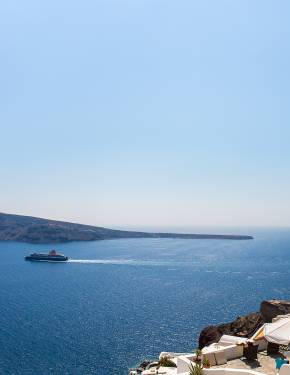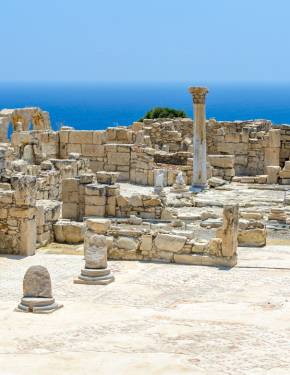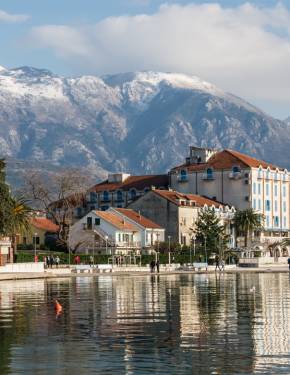Best time to visit by popularity Turkey
+179

© sorintanase / Dollar Photo Club
POPULARITY HIGHLIGHTS(MAY 22 - JUNE 01)
Based on social data we estimate crowdedness to be below average during this time period.
Last updated:
Jan
6.9
Feb
7.1
Mar
7.3
Apr
8.1
May
8.7
Jun
8.4
Jul
7.6
Aug
7.1
Sep
8.1
Oct
8.6
Nov
8
Dec
7.2
Turkey weather in January
6.9/10 score
Good
8° average
average temperatures
11 mm
precipitation
6h 24m
daylight duration
In January, the weather depends substantially on the region. In the area of the Black Sea and Istanbul, January is chilly and wet. During the day, the temperature may rise to 9°C (48°F), but it drops if the wind blows from the Balkans or the north. Days are foggy and rainy, with two hours of sunshine and snow falling occasionally.
Moving from the Black Sea area to the south along the coastline, the weather gets milder. Generally, mornings are cold, but, at noon, the temperature reaches over 15°C (59°F). Make sure to carry an umbrella as it might rain.
In the inland areas, temperatures are lower, and winter feels more distinctively. Snow doesn’t melt immediately, and if you go to the mountains, you can ski or snowboard. But beware of the Eastern Anatolia Region, where freezing -20°C (-4°F) are not that rare.
Turkey weather in February
7.1/10 score
Very good
8° average
average temperatures
10 mm
precipitation
6h 24m
daylight duration
The cloudy sky brings continuous rains and snowfalls in Istanbul. Although the temperature is not that low, it’s pretty damp, windy, and nasty outside. Thus, February is not the best time for sightseeing in the city. The same is fair for Ankara. The city would welcome you with snow and freezing wind, especially when it blows from Russia. Being in these areas, put on your warmest apparel.
On the contrary, the west and south cities such as Izmir and Antalya indulge visitors with sunshine and a cozy warmth. You don’t need more than a jacket or sweater to feel comfy.
Turkey weather in March
7.3/10 score
Very good
10° average
average temperatures
10 mm
precipitation
6h 24m
daylight duration
In March, the temperature starts rising throughout the country. Mornings in Istanbul are still chilly, but during the day, the weather becomes milder and sunnier. It is difficult to avoid rain showers, so carrying an umbrella won’t be excessive.
The weather in the areas of the Aegean and Mediterranean Seas is sunny, and you can easily spend an entire day outside. It’s not that warm, though, and don’t be misled by the sunshine.
Meanwhile, Central Anatolia, including Ankara, still lives in the conditions of winter, with the grey sky and low temperatures.
Turkey weather in April
8.1/10 score
Excellent
14° average
average temperatures
8 mm
precipitation
6h 24m
daylight duration
The area to see pure spring in Turkey is along the Black Sea coast and in Istanbul. Here, mornings and evenings are fresh, but, generally, the weather gets better. It’s not that cloudy, and the showers are rare, so April is a good time to stop by Istanbul if you want to discover the city not too crowded by tourists.
The weather in the west and south gradually approaches summer. No clouds interrupt the sunshine, and you’ll need a jacket only for the evening walks. It’s not the time for sunbathing, but the sea warms up daily and gets ready for the upcoming beach season.
On the plateau, April is sunny, yet fresh: the sky is clear, but the temperature is relatively low. So, no walking in a T-shirt yet.
Turkey weather in May
8.7/10 score
Excellent
19° average
average temperatures
9 mm
precipitation
6h 24m
daylight duration
Late spring in Istanbul brings sunny days and fresh breeze from the sea. The weather is alike in Ankara: the temperature rises to 18-20°C (65-68°F), and rains are doubtful to bother you. Hence, spending the whole day outside could be your choice.
Cities on the coast of the Aegean and the Mediterranean Seas offer even more pleasing conditions. The sun usually shines all day long, the temperature increases gradually, but it’s not hot yet. And the crucial point is that the sea is warm enough for swimming. Officially, the beach season is open.
The only territory where the weather is not perfect yet is in the eastern plateau.
Turkey weather in June
8.4/10 score
Excellent
24° average
average temperatures
9 mm
precipitation
6h 24m
daylight duration
In June, it’s an ideal time for visiting Turkey, regardless of the region. Days are sunny and warm, yet not sizzling, and precipitation levels are low. The water is heated in all the seas washing the coasts of the country. The Mediterranean Sea is the one warming up first, but the Aegean Sea and the Sea of Marmara are also warm enough for swimming. The coolest one is the Black Sea. Besides, the surrounding area experiences rains that might last for several days. Also, in Istanbul, a brief thunderstorm may interrupt your walk.
In Ankara, the weather is dry, and you could feel the heat approaching. Still bearable for tourist activities, the heat drops abruptly by dusk, and nights might even seem cold.
Turkey weather in July
7.6/10 score
Very good
26° average
average temperatures
8 mm
precipitation
6h 24m
daylight duration
The heat rises. In Istanbul, it gets hotter and drier; the temperature reaches up to 25°C (77°F), and clear sky promises no rains. The further south you move, the hotter it becomes. In Antalya or Alanya, the top locations for the beach holidays, thermometers may show up to 35°C (95°F), and the sea is 28°C (83°F). Although staying on the beach all day long is tempting, you’d better make a several-hour break around noon. Let the heat decrease and make sure you protect your skin properly and stay hydrated.
By the Black Sea, there might be several rainy days, but on the rest of the coastline, you’re doubtful to need an umbrella. On the contrary, Ankara gets way too dry and too hot for sightseeing, and during the day, you’d better find a shelter to stay indoors.
Turkey weather in August
7.1/10 score
Very good
27° average
average temperatures
9 mm
precipitation
6h 24m
daylight duration
In August, the heat reaches its peak and becomes tiring. In the southern area, it could be uncomfortable to stay outside in the middle of the day, and the best choice is to take a nap at home or to hide in air-conditioned spaces. In the evening, the heat decreases, but you would feel it during the night too. For sunbathing and swimming, choose morning hours when the sun is not too bright. Anyway, don’t forget about sunscreen and hats when being under the direct sun rays.
At the same time, the weather conditions are more favorable near the Black Sea: the water is suitable for swimming, but the heat is not that devastating.
Central Turkey also goes through the hot days with temperatures up to 33°C (91°F). By dusk, the heat decreases, and it could get fresh enough for you to put on a light jacket. And beware of occasional thunderstorms.
Turkey weather in September
8.1/10 score
Excellent
24° average
average temperatures
10 mm
precipitation
6h 24m
daylight duration
September brings a perfect combination of warm sea and tolerable heat, which makes it the most popular month for beach vacations. In Turkey, it’s the best time for swimming and sunbathing along the coastline. However, the areas of the Black Sea and Istanbul are colder, more cloudy and occasional rain showers might intervene with your plans.
Mild weather offers sightseeing and hiking as alternatives to sunbathing. September is an excellent time to explore central Turkey and to visit the mountain areas along with the eastern-most regions.
Turkey weather in October
8.6/10 score
Excellent
17° average
average temperatures
10 mm
precipitation
6h 24m
daylight duration
October marks the transition to winter. If you visit Istanbul, most likely, it’s raining there, the temperature is around 16°C (61°F), the entire city is foggy, and the sky is cloudy. The weather is unstable, and the sun interrupts gloomy days occasionally. Such conditions are still bearable for a visit, but you should better plan for some indoor activities. In some years, it could be warm and sunny, though.
You’ll feel how the air in Ankara got colder, and further east, it gets even more chilly.
Meanwhile, the south endures the last days of summer with 25°C (77°F) on the thermometer and cloudless sky. If you prefer refreshing swim to a lazy splashing in the waves, October allows you to close the season.
Turkey weather in November
8/10 score
Excellent
14° average
average temperatures
10 mm
precipitation
6h 24m
daylight duration
The temperature keeps on dropping. The western and southern coastal areas enter the mild autumn, with comfortably fresh mornings and still warm days. Humidity rises, and the chances for rain grow even in the south that was dry throughout summer. Istanbul and the Black Sea region have worse conditions than the rest of the coastline; here, rains are more often, fog covers the area, and the wind is chilly. Spending time here, you’d need warm clothes and a raincoat or an umbrella.
The weather is even worse in central Turkey and, especially in the east. In some areas, snow falls occasionally.
Turkey weather in December
7.2/10 score
Very good
9° average
average temperatures
11 mm
precipitation
6h 24m
daylight duration
In Istanbul and the north, the weather worsens compared to November. You can still explore the area, but only appropriately dressed and ready for continuous rains. In Ankara, the conditions are unsuitable for outdoor activities too. Here, the temperature decreases and swings, and you’d need a shelter to hide from snowfalls. In the east, it’s already harsh winter, with snowdrifts and freezing wind.
Meanwhile, the beginning of winter in the west and south coastline is mild. The sky is cloudy, but the sun is not rare; mornings and evenings are fresh, but the days are warm enough for walking. Occasionally it rains, but briefly.
Nearby destinations









